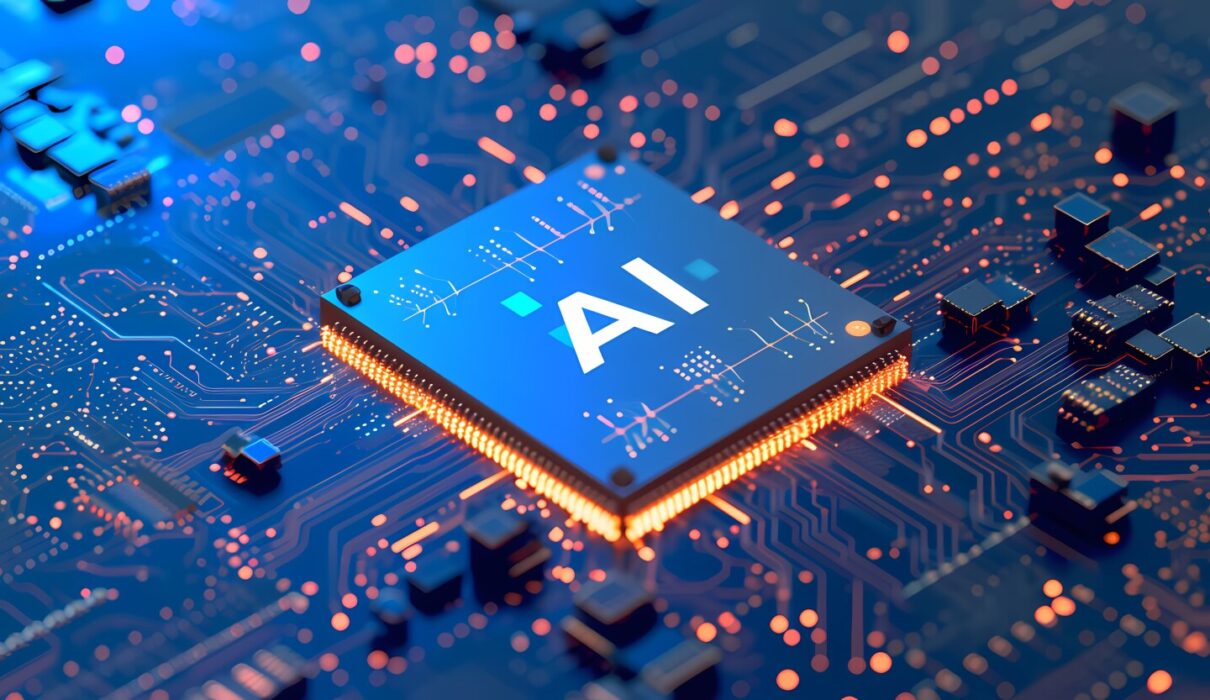Artificial Intelligence (AI) used to be the stuff of sci-fi novels and futuristic films. Today, it’s embedded in our lives — often in ways we don’t even realize. From the voice assistants on our phones to the recommendation engines behind what we watch and buy, AI is no longer a glimpse of the future it’s the technology of the present.
In this blog, we explore how AI is subtly, yet powerfully, transforming everyday life across various sectors — and what that means for all of us.

🤖 AI at Home: Smarter Living Starts Here
AI has made its way into our homes in more ways than one. Smart speakers like Amazon Alexa, Google Assistant, and Apple’s Siri can now control lights, thermostats, alarms, and even refrigerators — all through simple voice commands.
Real-life examples:
-
Smart thermostats (e.g., Nest) learn your behavior and adjust the temperature automatically to save energy.
-
AI-powered vacuum robots map your house and clean it efficiently — even while you’re away.
-
Streaming services like Netflix and Spotify use AI to recommend content you’re likely to enjoy based on your habits.
“AI isn’t just in the cloud anymore — it’s right in your living room.”
📱 AI in Your Pocket: Smartphones Become Smarter
Modern smartphones are packed with AI capabilities that often go unnoticed but make a big difference.
How AI improves your phone experience:
-
Facial recognition (Face ID) uses AI to secure your device.
-
AI-driven cameras optimize lighting, focus, and filters in real-time.
-
Predictive texting and auto-correct use natural language processing (NLP) to enhance communication.
Apps like Google Maps use real-time AI algorithms to calculate the fastest routes and avoid traffic jams — saving time and frustration.
🏥 AI in Healthcare: Saving Lives with Data
One of the most impactful areas of AI development is healthcare. From diagnostics to personalized treatment, AI is helping doctors make faster, more accurate decisions.
Key innovations:
-
AI algorithms can detect diseases like cancer, diabetes, or Alzheimer’s earlier than traditional methods.
-
Virtual health assistants provide round-the-clock guidance to patients.
-
Wearable health devices monitor vitals and alert users (or doctors) to abnormalities.
In some hospitals, AI systems are already outperforming radiologists in reading X-rays and MRIs.
🛒 AI in Retail: A Personalized Shopping Experience
Ever wonder how Amazon knows exactly what you want — sometimes before you do? That’s AI at work.
How it changes shopping:
-
Product recommendations are tailored using your browsing, buying, and search history.
-
AI chatbots provide customer support 24/7.
-
Virtual fitting rooms and AR (Augmented Reality) apps help you visualize clothes or furniture before buying.
This personalization doesn’t just boost sales — it enhances the shopping experience for customers.
💼 AI at Work: Automating the Routine, Amplifying the Creative
AI is transforming workplaces by automating repetitive tasks and supporting decision-making. It’s helping businesses operate more efficiently and employees to focus on what humans do best — think, create, and innovate.
In the workplace:
-
AI tools handle tasks like data entry, scheduling, and email filtering.
-
Platforms like ChatGPT or Grammarly assist in writing, editing, and summarizing.
-
Predictive analytics help companies forecast sales, optimize inventory, and understand customer behavior.
AI isn’t replacing jobs; it’s changing them — and creating new ones in the process.
🚘 AI in Transportation: Driving the Future
Self-driving cars may not be mainstream yet, but AI is already transforming transportation.
-
Ride-sharing apps like Uber use AI to calculate pricing, match riders with drivers, and suggest efficient routes.
-
AI in traffic management systems reduces congestion and pollution.
-
Autonomous vehicle companies (like Tesla, Waymo) are training cars to “see” and make decisions in real-time.
🧠 The Human Side: Ethics, Privacy, and Trust
With AI’s rapid rise, important ethical concerns come into play:
-
Privacy: How much personal data are we giving away for convenience?
-
Bias: AI systems can inherit human biases if trained on flawed data.
-
Job displacement: Automation may impact workers in sectors like logistics, manufacturing, or data entry.
It’s essential that as AI evolves, we build systems that are transparent, fair, and beneficial for all.
🔮 What’s Next?
AI is still in its early stages. With advances in machine learning, robotics, and neural networks, we can expect AI to play a central role in:
-
Personalized education
-
Smart cities
-
Climate modeling and disaster response
-
Creative industries like music, writing, and art
The question is no longer if AI will be part of our lives — it’s how we’ll choose to shape its role in society.
✨ Final Thoughts
Artificial Intelligence isn’t a far-off concept anymore. It’s already here — improving lives, solving problems, and raising new questions. Whether you’re embracing smart devices, using AI-enhanced tools at work, or benefiting from AI-powered healthcare, you’re part of this technological shift.
AI is not replacing humans — it’s redefining what it means to be human in a digital world.

